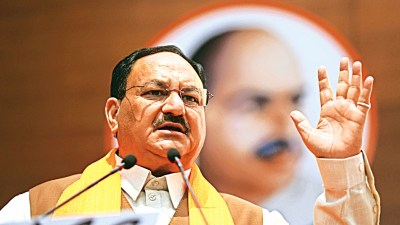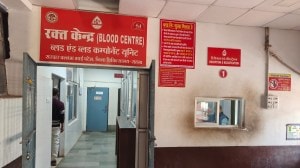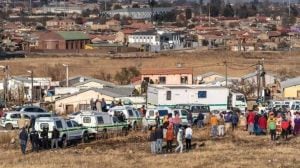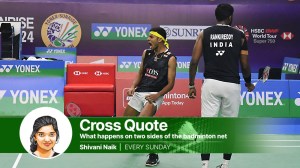The Meira Paibis of Imphal’s Chingamakha area begin their nightly vigil at a small “guard-post” at 9 pm. On Saturday, at around 9.40 pm, two women volunteers working for the Congress candidate from Inner Manipur Lok Sabha constituency joined them for 10 minutes.
“We’re going to different places tonight to meet some people who have good connections in their neighborhood, especially women, so that they can know our candidate better, and can get other people in the locality also talking (about the candidate),” said one of the volunteers.

After a short, quiet conversation with the Meira Paibis — the powerful Meitei women activists of Manipur — they move to their next stop.
In the uneasy air of Manipur, where continuing tensions have resulted in ambivalence over the electoral process, the election campaign is taking place in a muted way, and at a micro level.
In the Inner Manipur constituency, one of the state’s two seats and the one that covers most of the Meitei-majority valley region, there are six candidates in the fray.
Prominent faces among the candidates are state Cabinet minister and former IPS officer Thounaojam Basanta Singh of the BJP; academic and associate professor at Jawaharlal Nehru University, Bimol Akoijam, who is making his political debut as the Congress candidate; and Maheshwar Thounaojam of the Republican Party of India (A) and R K Somendra (Kaiku) from the Manipur People’s Party – both of whom were popular actors before becoming politicians.
 Outside the Chief Minister’s secretariat in Imphal. (Express Photo: Sukrita Baruah)
Outside the Chief Minister’s secretariat in Imphal. (Express Photo: Sukrita Baruah)
However, there are no rallies, no public addresses, and almost no posters.
Story continues below this ad
Following nearly a year of violent conflict in the state, public disapproval against open campaigning in the valley has been palpable, and was given concrete form through a diktat issued by armed radical group Arambai Tenggol, discouraging election campaigns, feasts, meetings using loudspeakers, and flag hoisting. These, they declared in a statement, “can aggravate the situation and create more divisions within our community which can be detrimental to the situation.”
So instead, candidates are primarily reaching out to voters through “in-camera” meetings, involving groups of 20-50 people at the homes or private offices of local leaders. The candidates have also been making their presence felt by offering prayers to the patron goddesses at different areas.
The BJP has harnessed the party’s booth-level workers to conduct door-to-door meetings. A senior state BJP leader contrasted the ongoing campaign to how the party used to conducts campaigns earlier.
“Normally, the Prime Minister, the Home Minister, the Chief Minister – all hold big rallies with thousands of people. Now, along with the in-camera meetings, we are holding door-to-door campaigns by booth-level workers… We do not have national leaders here…,” he said, adding that if national leaders did come for campaigning in the state, “that might give a chance for people to say that they did not come for the conflict, but came for votes.”
Story continues below this ad
Some of these candidates, especially Bimol Akoijam and Maheshwar, have been very vocal about their opinions on the ongoing conflict. The media, particularly social media, is the only means many voters have of knowing about their candidates’ views.
A voter from the Patsoi said, “Normally, I have never cared about Lok Sabha elections. There is always more interest in the Assembly elections. But this time, everyone is discussing it, even if quietly. None of the candidates have come to our locality, but after this conflict started, people have been very closely following not only the local media but also the national media and especially social media. So for months, I have been hearing about what Bimol and Maheshway have been saying. Now I have some idea about what they represent.”
 Mema Laishram at Imphal’s Ima Market. (Express Photo: Sukrita Baruah)
Mema Laishram at Imphal’s Ima Market. (Express Photo: Sukrita Baruah)
There have also been instances of not-so-muted campaigning. The Chief Minister’s Secretariat has seen large numbers of women gathering there in the run-up to the elections. On Saturday afternoon, The Indian Express saw a line of women entering the secretariat, with one group even arriving in an open van. These meetings at the Chief Minister’s residence have raised eyebrows, and the Congress has lodged a complaint with the Chief Election Officer, alleging breach of the Model Code of Conduct.
A senior state BJP leader brushed aside allegations of misconduct, claiming that the “CM is only clarifying any doubts about the current situation and the government’s efforts” and “offering them refreshments afterwards”.
Story continues below this ad
Among those who have strong feelings about the act of appealing for votes after the experiences of the past year is Ibeyaima Yumnam (57), who has a handloom stall in Imphal’s famous Ima Keithel (women’s market). “They are taking credit for setting up relief camps and feeding people when that is their duty… After voting is over, we will be forgotten,” she said, getting emotional.
Her decision, she said, is to not vote, in line with calls from different unions in the market who have urged people to not take part in the election.
Explaining these calls, Mema Laishram (74), a leader of one of those unions, said, “It’s an emotional appeal. Insisting on conducting elections when there is no solution in sight is undermining the hardship of the people here. When people say things like ‘double-engine’, it is like an insult to the people.” Similar calls have also come from relief camps housing displaced people in the valley.

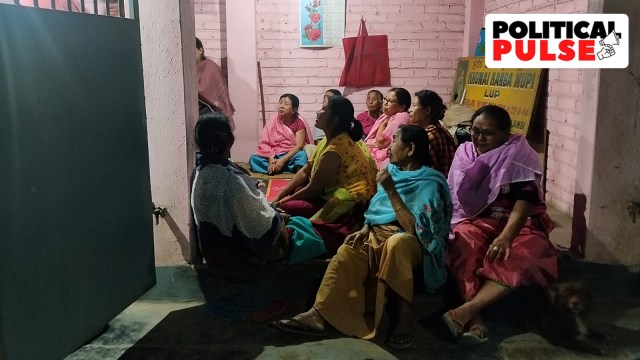

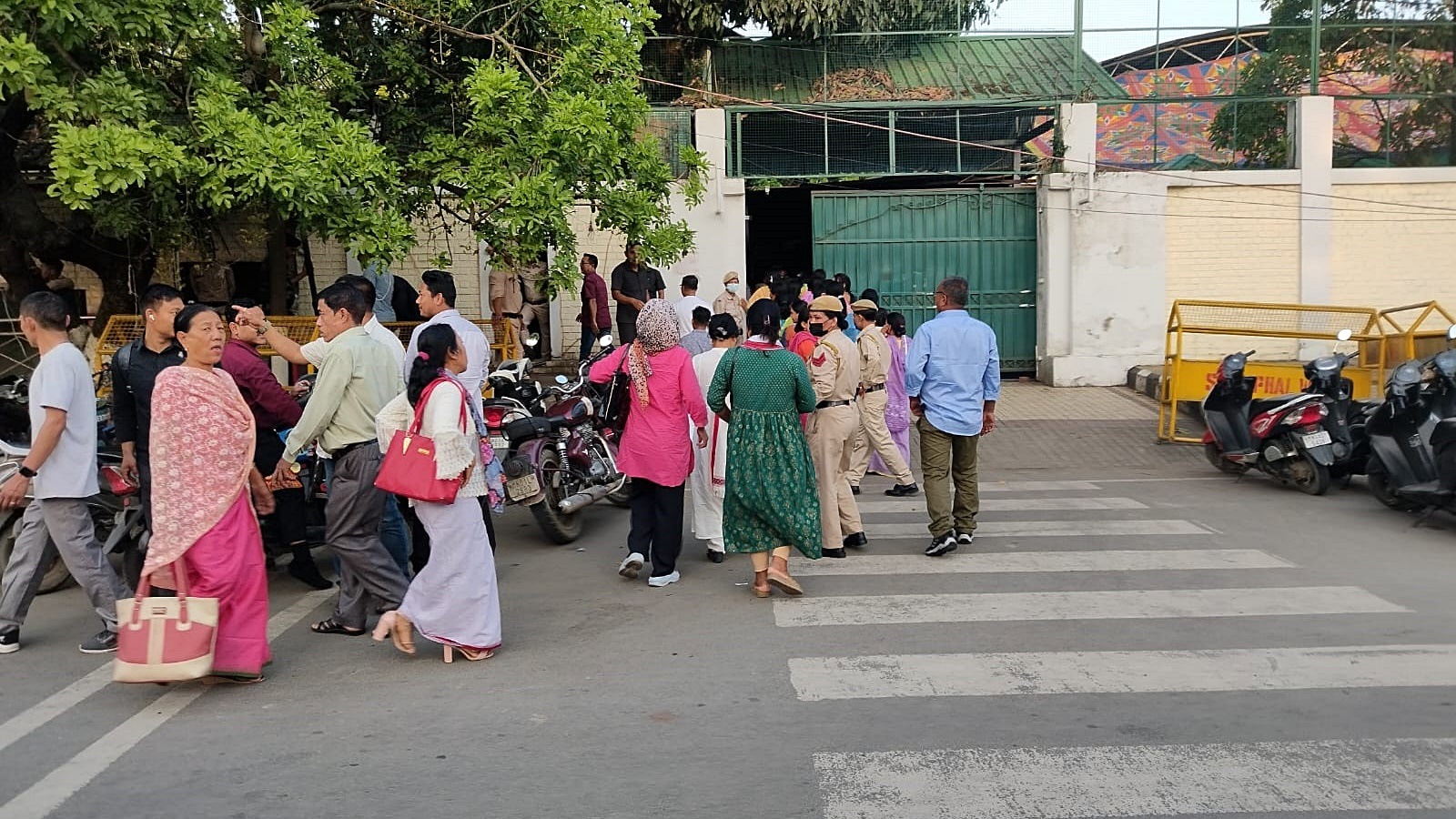 Outside the Chief Minister’s secretariat in Imphal. (Express Photo: Sukrita Baruah)
Outside the Chief Minister’s secretariat in Imphal. (Express Photo: Sukrita Baruah)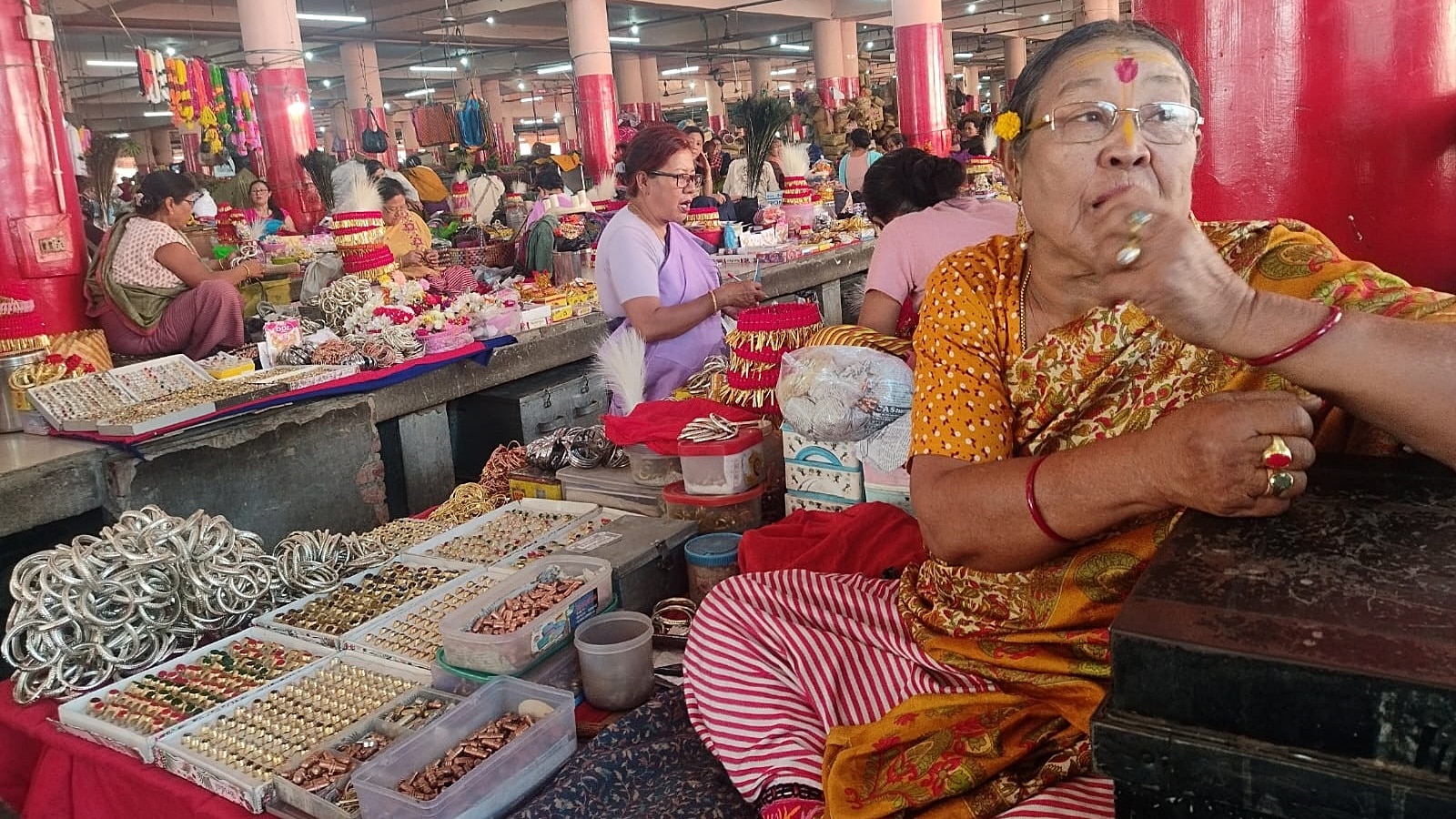 Mema Laishram at Imphal’s Ima Market. (Express Photo: Sukrita Baruah)
Mema Laishram at Imphal’s Ima Market. (Express Photo: Sukrita Baruah)
